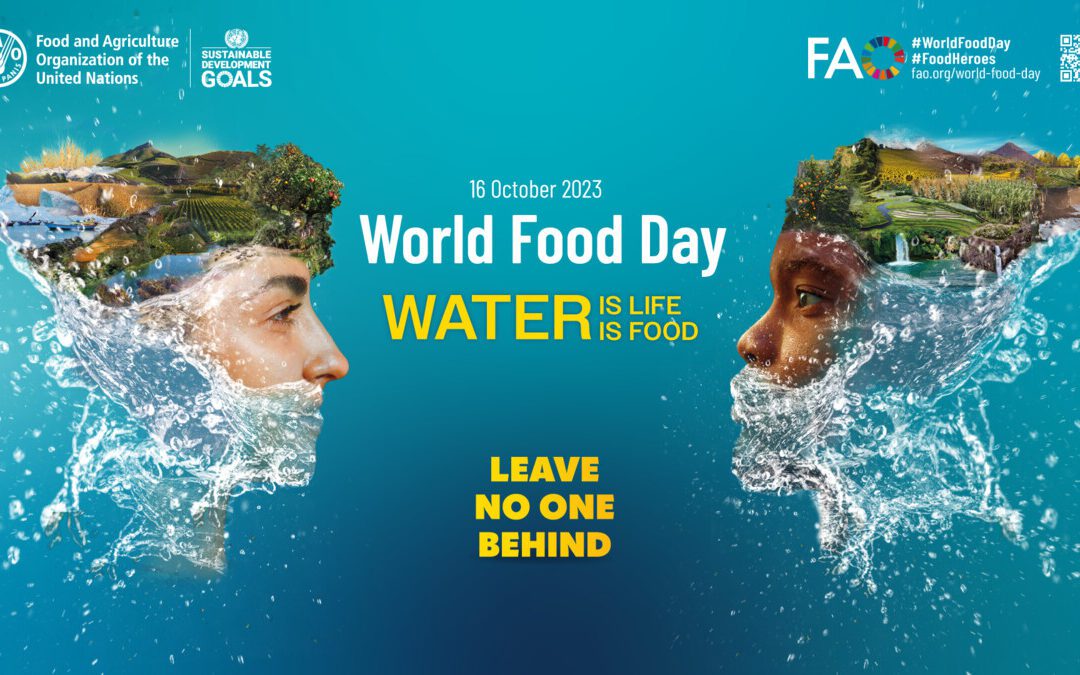Panuka Farm produces fresh vegetables in Zambia using agricultural techniques adapted to cimate...


Agrifood is one of the sectors most vulnerable to climate change impacts due to changes in temperatures and rainfall patterns, posing numerous threats to agricultural production, access to markets, biodiversity, and food security. Extreme weather events such as droughts, floods, and cyclones negatively impact agricultural productivity, water availability, and soil health, which interrupt production and raise the risk of diseases and pests, such as the locust swarms.
Examples of effective adaptation options in agriculture include: cultivar improvements, on-farm water management and storage, soil moisture conservation, irrigation, agroforestry, community-based adaptation, farm and landscape level diversification in agriculture, sustainable land management approaches, use of agroecological principles and practices, and other approaches that work with natural processes. Ecosystem-based adaptation approaches such as urban greening, restoration of wetlands and upstream forest ecosystems have been effective in reducing flood risks and urban heat. Adaptation options such as disaster risk management, early warning systems, climate services, and social safety nets have broad applicability across multiple sectors (ICCP 2023 Synthesis Report).
It is critical for small and medium-sized enterprises (SMEs) and businesses to adopt actions which improve their resilience to climate change impacts through adaptation measures such as water-efficient technologies (i.e., drip irrigation in agriculture, flood- or heat-resilient materials in factories and offices, and flood protection for company premises, such as flood gates) and solar panels. Using geothermal power and upgrading electrical equipment can enable a company to keep operating when severe weather brings down power grids. SMEs have an important part to play in the low-carbon transition, and there is support available through green financing to SMEs that embrace sustainability.
Several mitigation options, notably solar energy, wind energy, electrification of urban systems, urban green infrastructure, energy efficiency, demand-side management, improved forest- and crop/grassland management, and reduced food waste and loss, are technically viable and becoming increasingly cost-effective.
Dietary shifts present new opportunities for entrepreneurs transitioning to more plant-based products and more importantly tackling food waste. Many entrepreneurs support the circular economy by transforming agricultural food waste into productive resources (i.e., biofertilisers, renewable energy…).
Another strategy that agricultural SMEs use to address the impacts of climate change is crop diversification which can reduce the vulnerabilities of agricultural SMEs by being less reliant on one crop and protecting them from climate-related crop failure. Processing is a solution for local SMEs to develop value-added and quality food products, while also reducing post-harvest losses and food waste along the value chain and generating increased revenues.
Technology and smart agriculture can support smallholders to improve soil health by optimizing inputs such as water and fertilizer, access weather forecasts and micro-insurance products, and detect crop diseases through remote diagnostics. Climate information and advisory services that allow access to real-time weather information and climate forecasts can help SMEs make informed decisions and plan for potential risks.
Join our Agrinnovators community forum to discuss and explore how to encourage innovations across agricultural value chains to transform food systems in Africa, promote sustainable agriculture, and leverage investment. Share insights, ask questions, and collaborate on innovative solutions for a greener future

Panuka Farm produces fresh vegetables in Zambia using agricultural techniques adapted to cimate...

Forest Africa supports local Zambian communities and the environment through agroprocessing and...

The World Food Day 2023 highlights how water is essential for agriculture and food. COLEAD has...
Ngwala Inventions is a bio-tech and agri-tech company using organic wastes such as garbage, fruit peels and animal urine mixed with botanical extracts to form two-in-one organic pesticides and...
AgriLife is a pioneer of waste-to-nutrient insect technology using black soldier fly larvae to up-cycle organic waste into sustainable eco-friendly insect protein for animal feed. They presented at...
The family business Les Céréales de Tatam (LCT) transforms cereals traditionally grown in Mali (eg fonio, millet, maize etc.) into nutritive flour. The company sources the cereals from a Malian...
A company that engages in soil-less mushroom culture using agricultural waste, promoting deforestation-free agriculture through soil-less cultivation
Technological innovations in the agrifood sector
ChocoTogo processes cocoa into quality products and is committed to supporting the sustainable production of organic cocoa that preserving ancient cocoa varieties.
Les Céréales de Tatam processes grains produced in Mali (fonio, mil, rice, sorghum and maize) into high-quality nutrient-rich products for the local, regional and export markets. The company is...
Climate-resilient practices and innovations by agrifood SMEs A session organised by the PAFO and COLEAD